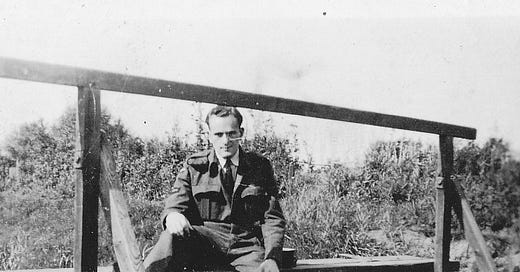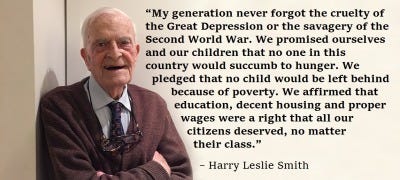Wearing the poppy is a November ritual to glorify needless wars & forget the waste of life.
In the grey of November when the clouds above hang low and move through the sky with the grim pace of a funeral dirge, the high streets of Britain blossom red with paper poppies. Britain is not a nation of people who easily wear their hearts on their sleeves. They prefer to hide their sorrow behind closed doors. But in the 21st century, when it comes to its war dead a brash public jingoism is the order of the day.
(Essay Harry Leslie Smith International Business Times November 2016)
News presenters, sports clubs, celebrities and people on the street brandish poppies on their lapels like patriotic bloodstains. A person can't get away without wearing a poppy unless they are willing to take scowls or outright condemnation from friends and strangers alike for a perceived failure to show respect to the dead. It is as if those who don't wear the poppy are seen as no better than people who trade state secrets to the enemies.
I don't wear a poppy anymore because it no longer signifies "Never again." Since the time of Margaret Thatcher, it has become an emblem of perpetual combat and the militarism of our society. Wearing the poppy gives a blank cheque to our politicians to justify their wars for conquest or economic domination and to excuse the casualties and suffering caused by them.
We have lost our right to collectively mourn our war dead if we are unwilling to accept the fact our military-industrial complex does not have our country's best interests at heart when they sell weapons of death to tyrants. It is why the insistence of certain media outlets to name and shame those who don't wear the poppy is not only reprehensible but jingoistic. Ultimately it manufactures consent for current and future wars.
I did not always feel this way about the poppy, but then again I was born five years after the guns grew still on the Western Front in 1918.
I can remember the 10th anniversary of the armistice because the people's grief was as jagged as shattered glass since everyone in this country had been touched by war.
On that long ago Sunday I don't remember whether the people wore poppies or not because the grief from that war was as fresh and as raw as lost love. Back then the need for symbols to remember the dead in war wasn't seen as it is now – as a means to prod the collective memory of our citizens towards patriotism without reflection on whether some wars are less just than others.
We understand so little now about the hardship and heartache that my parent's generation or my generation endured from either the First or Second World War. We are more intent on honouring the clichés of war rather than looking to end the suffering it unleashes.
I am old, so I can't help but look back on the grief from that time long ago when my family and my community went to the Cenotaph to remember our dead. But I also remember with anger how those Tommies who fought in the trenches but came home damaged beyond repair and were left to die in abject poverty during the 1930s. Even though I was haunted by the shameful treatment I saw doled out to the soldiers of the First Great War, I didn't shirk from taking the King's shilling for the Second. My war was good because I came back in one piece, but the carnage I saw and helped create changed me. It made me understand that between nations, between regions and between people, there is more that unites us than divides us.
It is time that we stop remembering the dead if that makes us forget the suffering of those living through present day, unnecessary wars. So as Remembrance Sunday rolls on like it has done every year since the War To End All Wars ended,, I will recall the mates I lost during the last just war – our battle against fascism. But I will also remember to do my duty to the living by fighting for the rights of the vulnerable and speaking up for those caught in the great sorrow of this modern refugee crisis.
Your support in keeping my dad’s legacy going, and me alive is greatly appreciated. I depend on your subscriptions to keep the lights on and me housed. So if you can, please subscribe. And if you can’t -it is all good because we are fellow travellers in penury. But always remember to share these posts far and wide. The Green & Pleasant Land, the project my Dad was working on at the time of his death is almost ready.





I agree absolutely. It's also been hijacked by the Right as yet another stick to beat the rest of us with. It disgusted my mum, who actually did participate in the Second World War, unlike those Boomers who like to claim that they did.
Excellent point. We were supposed to wear poppies to remember the dead and prevent it from happening again. The poppy is meaningless if those that wear it do not support peace.